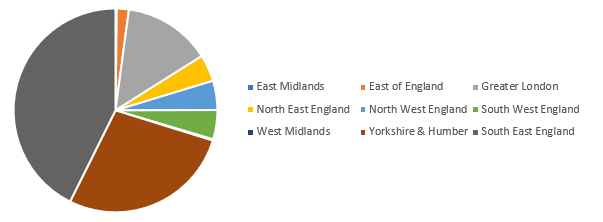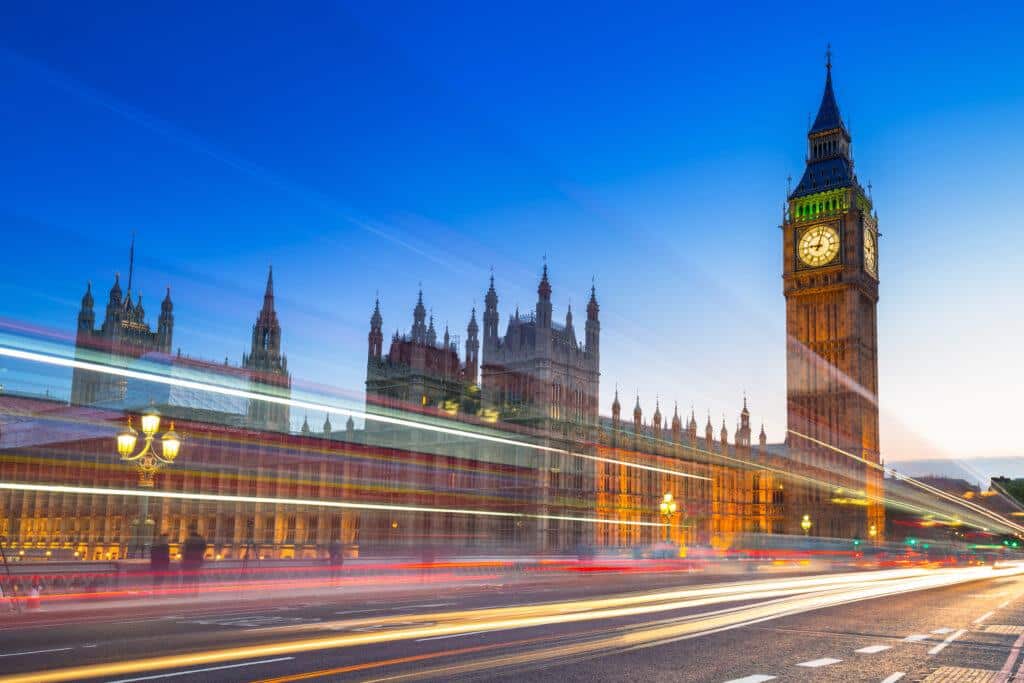With the COP26 summit bringing climate change and the environment into focus perhaps more than ever before, we used Oxygen’s Insights Spend to take a look at what local government spend data across related key categories might tell us about where councils in England are on their journey towards greater sustainability:
Solar, Wind & Hydro Projects
The 2020/21 Financial Year saw council spend on energy efficiency projects such as the installation of solar PV panels, wind farms etc increase by over 28% to reach £38.38M – the second highest figure seen since Illuminator’s records began in 2012. Early indications for 2021/22 show that the increased level of spend seen last year looks set to continue during the current financial year.
The chart below shows how this sort of investment varied across the regions in 2020/21, with councils in the South East leading the way:

Environmental Consultancy Services
Councils in England spent a total of just over £133.6M on consultancy services relating to the environment (including energy) in 2020/21. This represents a decrease of almost 10% when compared to the previous financial year, when spend had reached a new recorded high.
The last few years have seen councils across the country produce strategies to tackle climate change, reduce greenhouse gas emissions and lower air pollution. These documents often set out a range of measures aimed at reducing direct council carbon emissions to net zero by 2030, as well as outlining visions for the development of more sustainable communities in collaboration with businesses and partner organisations.
Nature Conservation
Spend in this category, which covers costs relating to conservation groups and associated charities, fell by just under 9% in 2020/21 to £20.57M, with well over a third of this total figure relating to spend with the Wildlife Trusts. 2019/20 had seen spend in this category reach a new high, however early data indicates that the current financial year could be another record breaker.
Energy & Mixed Utilities
2020/21 saw council energy costs (electricity, gas and water) fall by just over 11% to just under £859M – the lowest level seen since Insights Spend’s records began. Whilst the Covid-19 pandemic is likely to have had an impact on this, these costs had already been falling steadily over recent years and early data for the current financial year shows that they could be set to fall again.
Fuel
Another category likely to have been impacted by the Covid-19 pandemic is council fuel costs, which set another new low by falling by almost 18% to £103.13M in 2020/21. Early data for 2021/22 shows a slight increase on the previous year, however spend still remains well below the levels seen pre-2020/21:

Whilst the Covid-19 pandemic has inevitably had an impact on the planning and delivery of local government sustainability, in many cases it seems to have brought forward the delivery of certain longer-term targets. A recent Climate Change Action Plan report published by one West Midlands council stated that the pandemic had led to “some short-term measures being delayed and some medium and long-term measures being delivered sooner than planned”, with a related Reset Action Plan having the potential “to significantly accelerate progress towards net zero”.
Insights Spend facilitates advanced procurement decision-making and provides an accurate real-time market overview of public sector/supplier spend.




